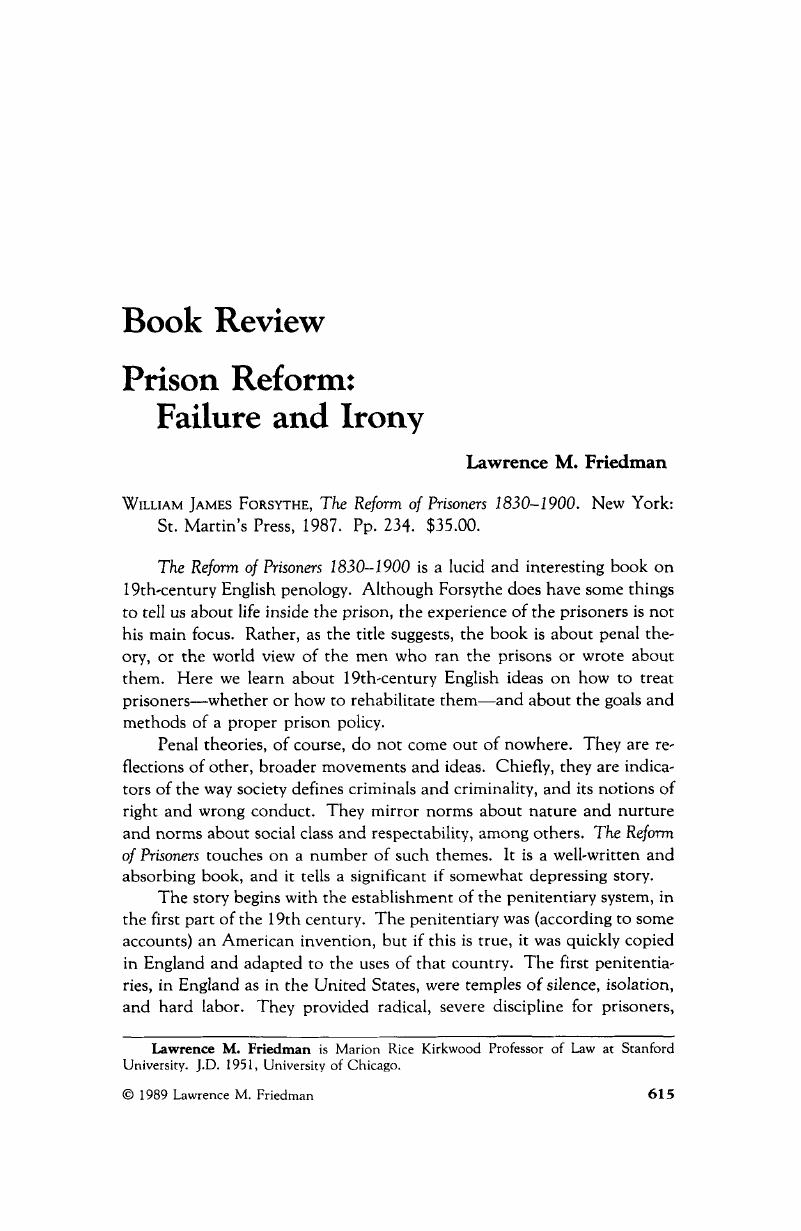No CrossRef data available.
Published online by Cambridge University Press: 27 December 2018

1 See, in general, Rennie, Ysabel, The Search for Criminal Man: A Conceptual History of the Dangerous Offender (1978) (“Rennie, Criminal Man”).Google Scholar
2 See Haller, Mark H., Eugenics: Hereditarian Attitudes in American Thought (1963).Google Scholar
3 Jukes was the (pseudonymous) name of a family of paupers, criminals and no-goods chronicled in Richard Dugdale's book, The ‘Jukes’: A Study in Crime, Pauperism, Disease and Heredity (1877); the Kallikaks were another such family, whose history of misery through the generations was the subject of Henry H. Goddard's book, The Kallikak Family: A Study in the Heredity of Feeble-Mindedness (1912); see, in general, Nicole Rafter, ed., White Trash: The Eugenic Family Studies, 1877–1919 (1988).Google Scholar
4 274 U. S. 200 (1927). This famous case upheld the power of the state (Virginia) to sterilize the feeble-minded. Justice Holmes's opinion contains the famous line that “three generations of imbeciles are enough” (id. at 207). Tragically, it appears that in fact neither the woman sterilized (Carrie Buck) nor her supposedly feeble-minded daughter were retarded at all. N. Y. Times, Feb. 23, 1980, p. 6, col. 3; March 7, 1980, p. A16, col. 2.Google Scholar
5 See Rennie, Criminal Man 223–28 (cited in note 1).Google Scholar
6 See Rothman, David J., The Discovery of the Asylum: Social Order and Disorder in the New Republic (1971); Hirsch, Adam J., “From Pillory to Penitentiary: The Rise of Penal Incarceration in Early Massachusetts,” 80 Mich. L. Rev. 1179 (1982).Google Scholar
7 Beaumont, Gustave de and Tocqueville, Alexis de, On the Penitentiary System of the United States and Its Application in France (1964) [1833].Google Scholar
8 Id. at 79.Google Scholar